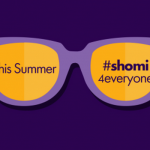 Web2Mobile is a company that specializes in making your content mobile ready for ease of use for your customers on the go.
Web2Mobile is a company that specializes in making your content mobile ready for ease of use for your customers on the go.
In the last 12 months we seen a lot change in the mobile market with a huge transition of users putting their mobile devices ahead of their laptops and desktop computers.
Web2Mobile works with companies to strategize efforts to make the transition as easy as possible for both the company and the users will access that content.
When asked whether companies understand the need to transition to mobile technology, Deb Hall states, “there is confusion on the term mobile marketing and what it entails and the opportunities it can offer.” To ease some of the misunderstanding, Web2Mobile specializes in creating a suite of tools that help to erase that confusion and make the client feel comfortable changing the format of their content.
The tools created by Web2Mobile apparently make it easier for marketers or publishers to upload their content into Web2Mobile’s self serve system and convert it, making it mobile friendly. Being a service oriented business, it looks to reduce the costs based on consultants helping companies make the change and puts the power of the transition into the hands of the client themselves.
“We’ve all seen content not formatted for mobility, such as bad email newsletters, unformatted websites, and this content just does not transition to the world of mobility,” says Deb Hall when asked about companies that think they can do it on their own. She made it a point to stress that there is a definite need to understand the difference between the normal web and the mobile browsers and that development for the two is very different.
 |
| Deb Hall |
Deb notes that even on a personal level, using mobile devices create a difference in behavior in how we use and read content and how we interact with our devices. No longer are we worried about being at a desktop, nor do we have to worry about the life of a battery on a laptop. In the last ten months she notes that this transition has become more apparent as the iPhone, specifically, has immersed itself into the general populace.
She also notes that “the mobile browsing space has increased as much as 400% month to month,” make it apparent that companies want to make it easy for the end user to use the devices and access their content. With the increase in wifi tethering, the ability to access content anywhere, and making the technology tools easily accessible to just about anyone, it’s not surprising to see such high numbers of adopters.
Is the Western World Ready?
There is a distinct difference in how the West uses mobile technology compared to our counterparts in the Far East. Our Eastern counterparts are using mobile technology for entertainment, streaming TV, music, maps, directions, and just about every basic need possible. The advancement of technology in mobility is leaps and bounds ahead of the West.
In response to our conversation Deb Hall states that when “[she] worked for Yahoo mobile she noticed distinct differences in how both side of the globe use technology. There are behaviors that are distinct to each country. Pricing models are different and that drives the behavior.” She notes an example on how fast mobile technology picked up in the UK and how it was based on the nominal fee for use compared to Western pricing.
 There is no doubt that the West is slowly catching up with our overseas counterparts, but there is still a long way to go. Web2Mobile is doing it’s part to help companies understand just how important mobile technology can be to their business and eventually their overall bottom line.
There is no doubt that the West is slowly catching up with our overseas counterparts, but there is still a long way to go. Web2Mobile is doing it’s part to help companies understand just how important mobile technology can be to their business and eventually their overall bottom line.
Key Points
At what point does a company consider going mobile? It’s a matter of strategy, and companies like Web2Mobile look to help companies develop that strategy. When Deb hears the word strategy she thinks about how they are going into battle. The goal is to get their clients in front of as many people as possible.
“How do we know we’re implementing the right strategy? It’s very important to determine the key objective, is it sales, awareness, or creating a good user experience? It’s all about prioritising,” Deb Hall says regarding the key points that must be identified.
In all the studies done on mobile users it’s been determined that mobile users are more than likely to act on a call to action. The key then becomes how to make the call to action easy to find. It’s vital for companies to make their sites, emails, and advertisement mobile ready and easy to use.
Tracking Metrics
A key factor for a company is to know how much interaction is being done with their new mobile strategy. Metrics give good insights on the success of the campaign, and having access to those metrics can determine the direction.
“One of the first questions we get when we work with new client is which platform they should be on. Should I be on an iPhone or Blackberry,” says Deb about the confusion of entering the mobile space.
 An inside tip that Deb shares with us is that most companies can evaluate what is happening on your current website and from there determine what devices are accessing your content. Based on those metrics you can better plan your mobile strategy based on those percentages of iPhone vs Blackberry vs any other mobile device.
An inside tip that Deb shares with us is that most companies can evaluate what is happening on your current website and from there determine what devices are accessing your content. Based on those metrics you can better plan your mobile strategy based on those percentages of iPhone vs Blackberry vs any other mobile device.
An example Deb gave was their involvement with the Masters Tournament. Based on the metrics they analyzed they were able to serve up distinct content to users on various platforms. This makes the content unique to each user experience and helps to build that relationship between the company and their end user.
Web2Mobile is very excited with the involvement in FITC and hopes to interact with marketers, developers, and agencies and introduce them to their suite of tools. They look to share with all attendees what they are doing and hope that more companies understand the importance of making their content accessible via mobile devices, especially companies serious about extending their brand online.







 ADVERTORIAL
ADVERTORIAL
 The Association organizes four country specific tours per year to identify the best emerging companies in a geographical region, as well as two vertical industry events to capture the most innovative European companies in a specific industry segment, such as Semiconductor, Cleantech, Medtech and Web & Mobility.
The Association organizes four country specific tours per year to identify the best emerging companies in a geographical region, as well as two vertical industry events to capture the most innovative European companies in a specific industry segment, such as Semiconductor, Cleantech, Medtech and Web & Mobility.

 There is no doubt that the West is slowly catching up with our overseas counterparts, but there is still a long way to go. Web2Mobile is doing it’s part to help companies understand just how important mobile technology can be to their business and eventually their overall bottom line.
There is no doubt that the West is slowly catching up with our overseas counterparts, but there is still a long way to go. Web2Mobile is doing it’s part to help companies understand just how important mobile technology can be to their business and eventually their overall bottom line. An inside tip that Deb shares with us is that most companies can evaluate what is happening on your current website and from there determine what devices are accessing your content. Based on those metrics you can better plan your mobile strategy based on those percentages of iPhone vs Blackberry vs any other mobile device.
An inside tip that Deb shares with us is that most companies can evaluate what is happening on your current website and from there determine what devices are accessing your content. Based on those metrics you can better plan your mobile strategy based on those percentages of iPhone vs Blackberry vs any other mobile device. According to
According to  According to NPD’s Q2 2009 ranking of handsets, the
According to NPD’s Q2 2009 ranking of handsets, the  NPD Group compiles and analyzes mobile device sales data based on more than 150,000 completed online consumer research surveys each month. Surveys are based on a nationally balanced and demographically representative sample, and results are projected to represent the entire population of U.S. consumers.
NPD Group compiles and analyzes mobile device sales data based on more than 150,000 completed online consumer research surveys each month. Surveys are based on a nationally balanced and demographically representative sample, and results are projected to represent the entire population of U.S. consumers.

 "On the vendor front, Ericsson continues to be the leading IMS vendor, but Huawei has made the most progress in terms of deployments and vendor perceptions. Huawei poses a credible and serious threat to Ericsson, Alcatel-Lucent, and Nokia Siemens based on the number of providers with Huawei IMS products under evaluation, and overall perception of Huawei across a broad set of criteria,"
"On the vendor front, Ericsson continues to be the leading IMS vendor, but Huawei has made the most progress in terms of deployments and vendor perceptions. Huawei poses a credible and serious threat to Ericsson, Alcatel-Lucent, and Nokia Siemens based on the number of providers with Huawei IMS products under evaluation, and overall perception of Huawei across a broad set of criteria," 
 "We operate one of the most modern and most rapid mobile data networks in Europe and our customers are to experience it without limitations, no matter whether they surf, email, use instant messaging or make phone calls", says Lutz Schüler, Managing Director Marketing & Sales of Telefónica O2 Germany.
"We operate one of the most modern and most rapid mobile data networks in Europe and our customers are to experience it without limitations, no matter whether they surf, email, use instant messaging or make phone calls", says Lutz Schüler, Managing Director Marketing & Sales of Telefónica O2 Germany. 

